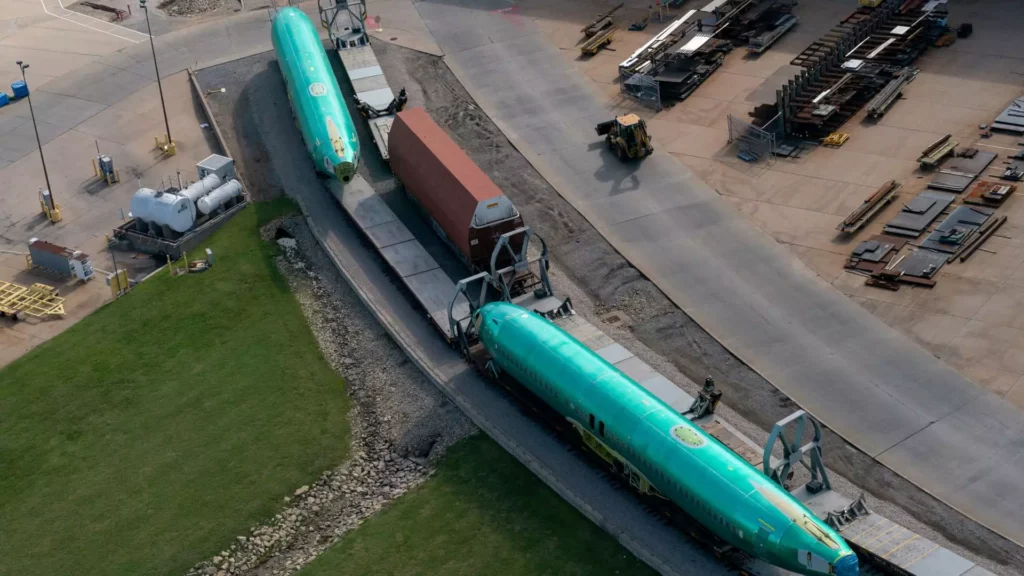The aerospace industry is experiencing a turbulent phase, primarily driven by labor unrest. Spirit AeroSystems, a notable player in the aerospace supply chain, is facing immense pressure due to an ongoing strike by Boeing machinists. With this strike approaching its sixth week, the ramifications are clear: significant disruptions in production and the potential for mass employee furloughs. The situation paints a grim picture of how one company’s labor disputes can reverberate through an entire industry, exposing vulnerabilities within the aerospace sector.
According to recent statements from Spirit AeroSystems, the company is considering additional furloughs or even layoffs of hundreds of employees if the strike persists past a critical deadline of November 25. This potential action is not merely a reactive measure; it underscores the frailty of the current aerospace supply chain. Already, Spirit was planning to furlough approximately 700 workers at its Wichita, Kansas facilities, a move that highlights the company’s vulnerability as it relies heavily on Boeing for business. Such furloughs not only impact the livelihoods of workers but also pose long-term challenges for workforce stability in an industry that has struggled to recover post-pandemic.
The ramifications of the Boeing machinists’ strike extend far beyond Spirit AeroSystems; they signal deeper issues within the aerospace supply chain. With over 32,000 machinists participating in this labor action, production of many of Boeing’s aircraft models has effectively ground to a halt. Spirit, which manufactures critical components such as fuselages for the Boeing 737 Max, is feeling the direct impact. The hesitance among suppliers to significantly downsize their workforce underscores the precarious balance they must maintain, having spent years rebuilding post-COVID-19.
Notably, other major industry players like Airbus are also experiencing similar supply chain pressures, highlighting that this is not an isolated incident. The interconnectedness of aerospace manufacturing means that disruptions in one area can have cascading effects, ultimately compromising the entire network that supports aircraft production.
The financial implications of this dispute are severe. Spirit AeroSystems recently reported a staggering net loss of $477 million in the third quarter, illustrating the steep costs associated with ongoing operational challenges. This figure more than doubles their losses from the previous year, raising concerns about the company’s long-term viability. As Boeing navigates its own challenges, including finalizing its acquisition of Spirit, the urgency to resolve labor disputes and restore normalcy in operations has never been more paramount.
Boeing’s new CEO, Kelly Ortberg, has emphasized the necessity of reaching a resolution with the striking machinists. Encouragingly, the labor union representing these workers has expressed readiness to re-engage in negotiations. Given the high stakes for both employees and companies within the aerospace sector, addressing labor disputes swiftly is essential in stabilizing the industry. The current crisis offers a stark reminder of the precarious nature of supply chains and the critical need for effective communication and resolution strategies to prevent prolonged disruptions that can adversely affect the entire aerospace ecosystem.

